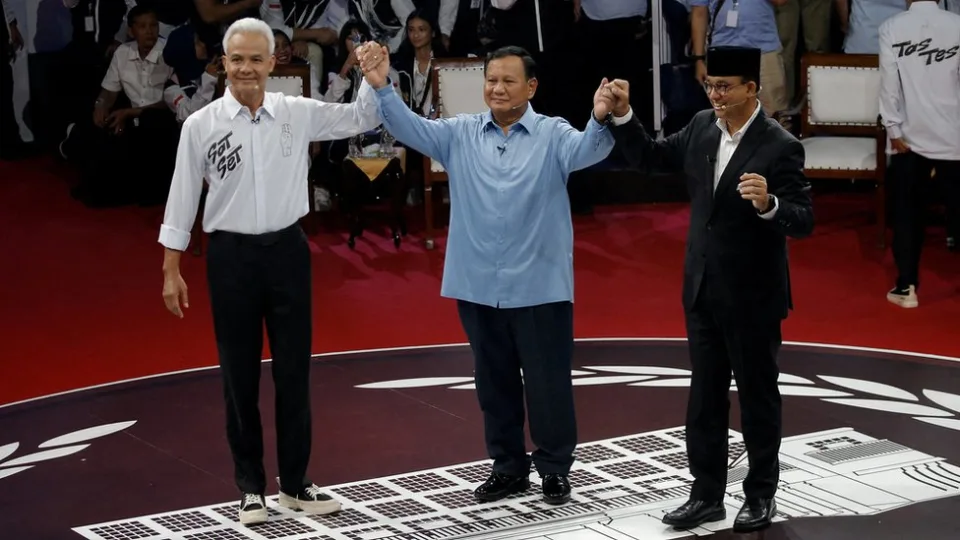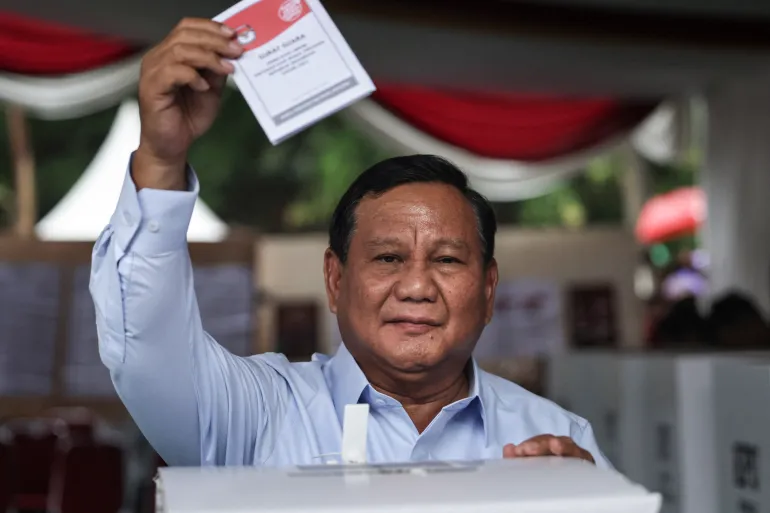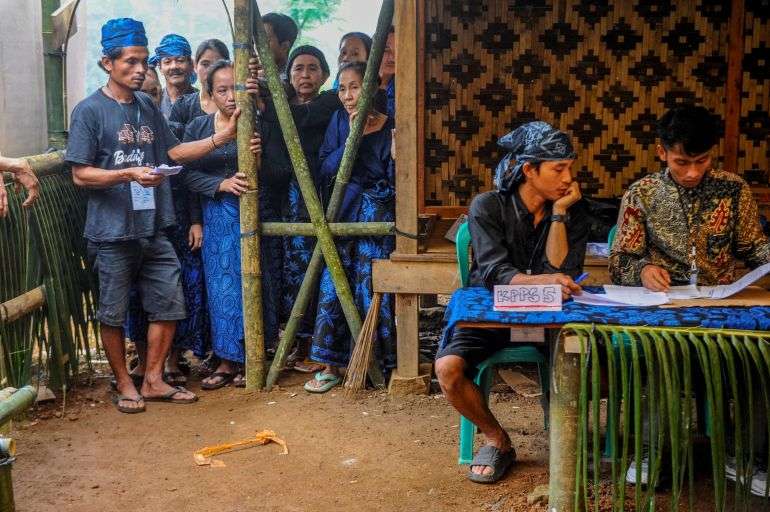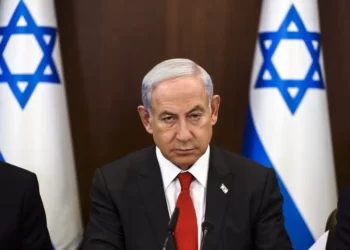Millions of Indonesians have voted in a hugely consequential election.
The election on Wednesday, February 14, 2024, took just six hours.
Voters did not only select their future President and Vice President, but also executive and legislative representatives at all administrative levels across the country, a vast archipelago of 17,000 islands spread across three time zones.
About 10,000 aspirants from 18 political parties eyed the national parliament’s 580 seats alone.
The presidential election is a three-way race between Defence Minister, Prabowo Subianto, who is making his third bid for the top job, and former Education Minister and Jakarta Governor, Anies Baswedan and former Central Java Governor, Ganjar Pranowo.

Outgoing President, Joko Widodo has not explicitly endorsed any of the three candidates but his son, Gibran Rakabuming Raka, is running as a Vice Presidential candidate in tandem with the Defence Minister.
After casting his ballot, Prabowo thanked the election workers, saying voting “went smoothly.”
On his part, Ganjar said that he would await the results.
“We’ll wait. If we win, we will be ready. We have to be ready,” he told reporters while also expressing optimism.
“For me, if we win or they lose, it’s the same.”
Meanwhile, Anies said, “I want to underline that we want honest and fair elections so that it becomes peaceful.”
The official vote tally is a laborious process that could take about a month, but early results based on sampling from registered private polling and survey groups are considered a reliable indicator of the final results.
A presidential candidate needs 50 percent of the overall vote and at least 20 percent of votes in each province to claim victory.
The top two in the presidential race will go to a runoff on June 26, 2024, if no candidate gets more than 50% of the votes.
Located between the Indian and Pacific oceans, Indonesia is the world’s fourth most populous country.
The logistics of the vote across the tropical nation’s 17,000 islands inhabited by 270 million people were daunting. Ballot boxes and ballots were transported by boats, motorcycles, horses and on foot in some of the more far-flung locations.
The election also has high stakes for the United States and China, since Indonesia has a huge domestic market, natural resources like nickel and palm oil, and diplomatic influence with its Southeast Asian neighbors.
A Comfortable Lead

According to unofficial results, Defence Minister, Prabowo Subianto has a strong lead in Indonesia’s presidential poll, putting him well ahead of opponents; Anies Baswedan and Ganjar Pranowo.
It suggests that the Defence Minister may be able to avoid a runoff.
The 72-year-old candidate has presented himself as an heir to immensely popular sitting President Joko Widodo, whose son he chose as running mate.
According to the early, unofficial tally conducted by polling agency; Kompas Search and Development, Subianto had a 58% lead with 70% of the vote counted in polling places sampled.
His rivals, Anies and Ganjar were polling at about 22 percent and 18 percent, respectively.
The quick count is based on the actual vote count at a sample of polling stations across Indonesia.
Indonesia’s new President will be inaugurated in October.
Widodo’s successor will inherit an economy with impressive growth and ambitious infrastructure projects, including the ongoing transfer of the nation’s capital from congested Jakarta to the frontier island of Borneo at a staggering cost exceeding $30 billion.
READ ALSO: “Impeachment Politics” Set Concerning Precedent In Election Year





















